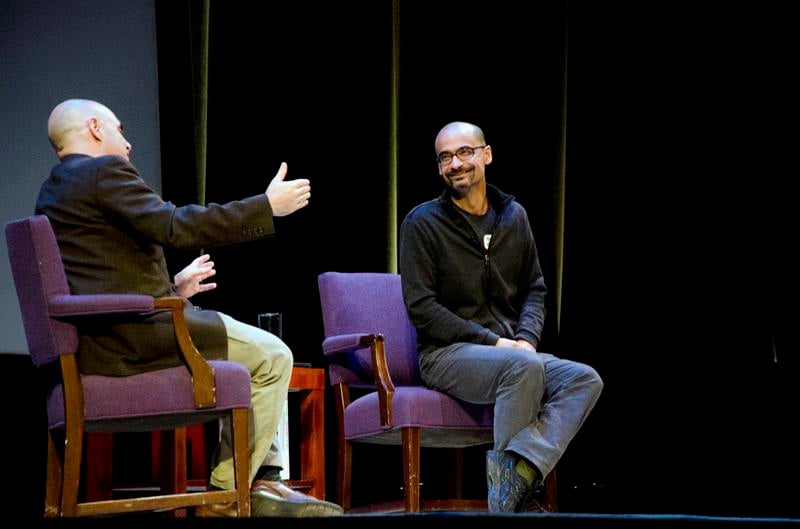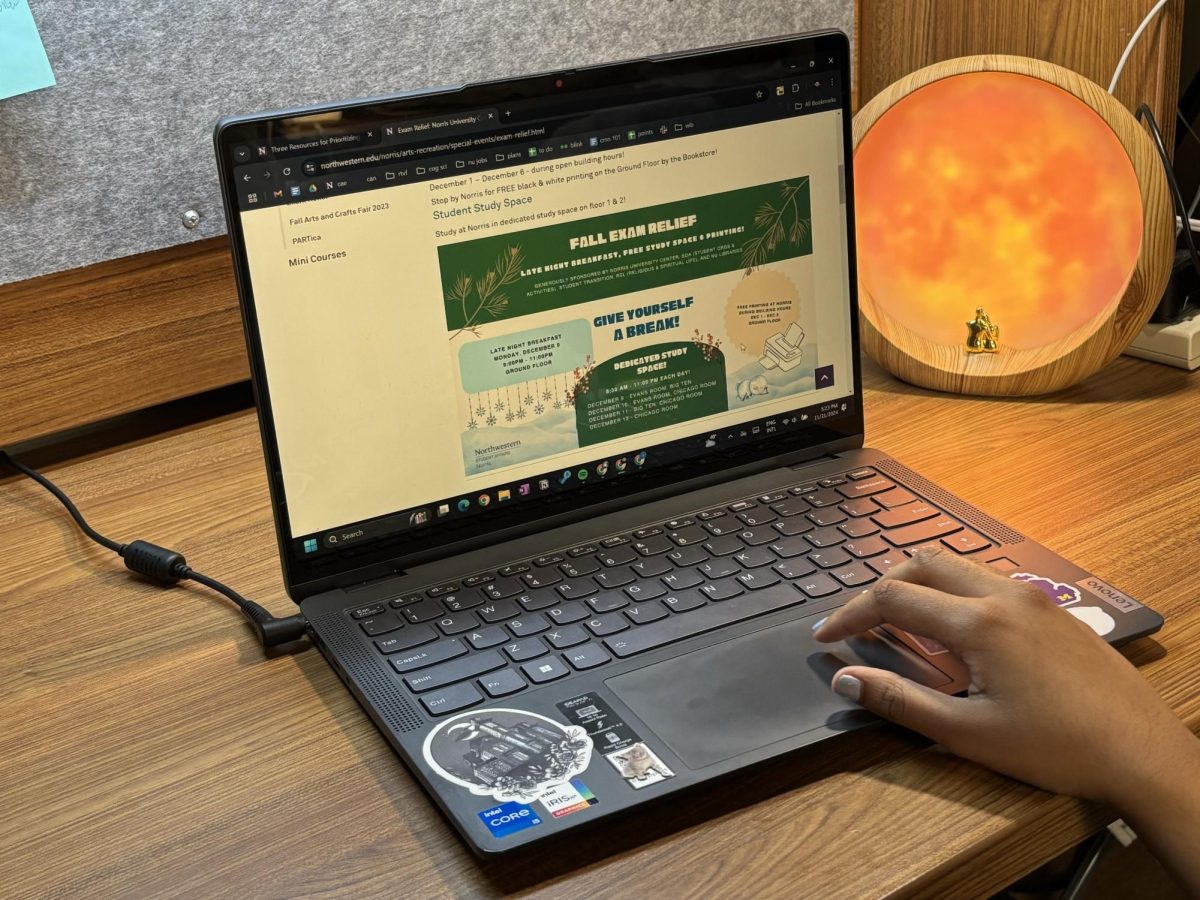Pulitzer Prize-winning author Junot Diaz spoke Sunday in Cahn Auditorium to an audience of more than 1,000 people, sharing how his personal experiences with race and immigration have inspired his writing.
The event was the culmination of the Morry and Dolores Kohl Kaplan Northwestern Day, which kicked off the 24th annual Chicago Humanities Festival. The theme for this year’s festival, “Animal: What Makes Us Human,” stems from the intersection between the natural sciences and the humanities. The event was moderated by National Public Radio’s Peter Sagal.
Matti Bunzl, the festival’s artistic director, said Diaz was invited to address this year’s theme because “the questions of love and passion and desire are at the heart of his work, and he’s one of our most pressing and eloquent speakers.”
Diaz spoke extensively about the influence of his experiences as an immigrant on his writing, expressing concerns about the role of immigrant literature in the United States.
“I’m always sort of cautious,” Diaz said. “One book cannot represent 10 million people. I think a book can open up a conversation with a whole wide range of folks, including perhaps the community.”
Medill freshman Steffanee Wang said she found Diaz’ discussion of his writing useful personally and academically.
“I’m taking a class called Writing Between the Margins and we recently read his book, ‘Drown,'” Wang said. “(The event) gave me a lot of insight into the author. I think he’s brilliant.”
Diaz went on to discuss the major themes of his works and their roles in community narratives.
“A lot of the conversations my characters are having … are a shorthand to talk about things we need to use shorthand to talk about, like masculinity or senses of authenticity and how much we’re attracted to authenticity,” he said.
Diaz described choosing topics for his novels and the characterization that allows readers to feel that the work is representative of a more universal experience.
“My interest in the particular guarantees to a certain degree that across the board people will feel like this is speaking to a community or universal experience,” he said. “It’s one of the strangest thing about the particular. (It) allows us to imagine in a larger way.”
Diaz ended his discussion by sharing his thoughts on the inclusion of minority narratives in the arts.
“Art has survived the way it’s survived because its practitioners communicate to us news of the world,“ he said. “This country is diverse. Eventually our reading habits and cultural systems will catch up. It’s a literacy that we will have to preserve.”
Weinberg junior Lakin Davis said she especially appreciated Diaz’s commentary on racial issues.
“I think it was great how personal and comedic he was,” Davis said. “Everything he discussed about race is really relevant to everyone here, especially at Northwestern.”
Email: [email protected]
Twitter: @MariamSGomaa













